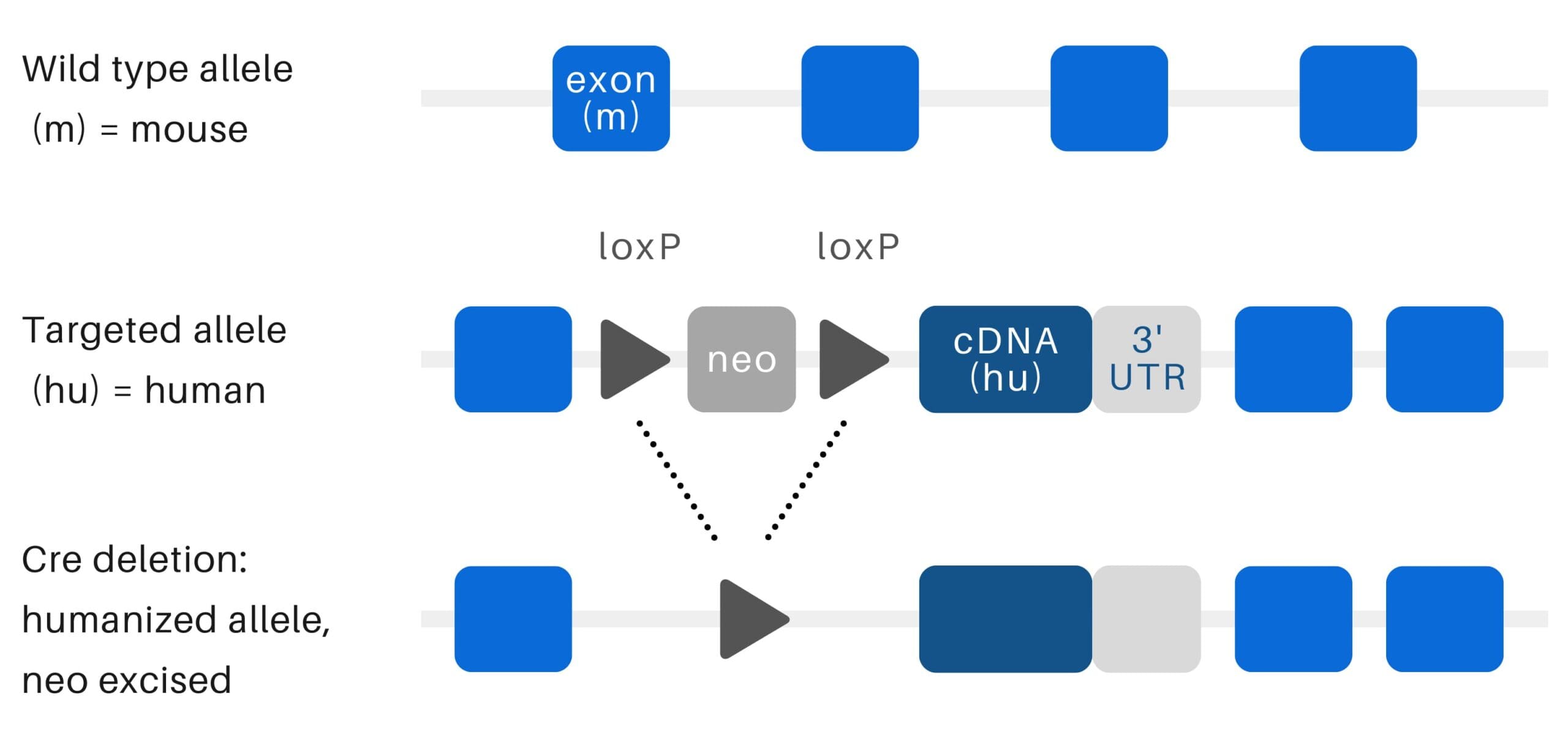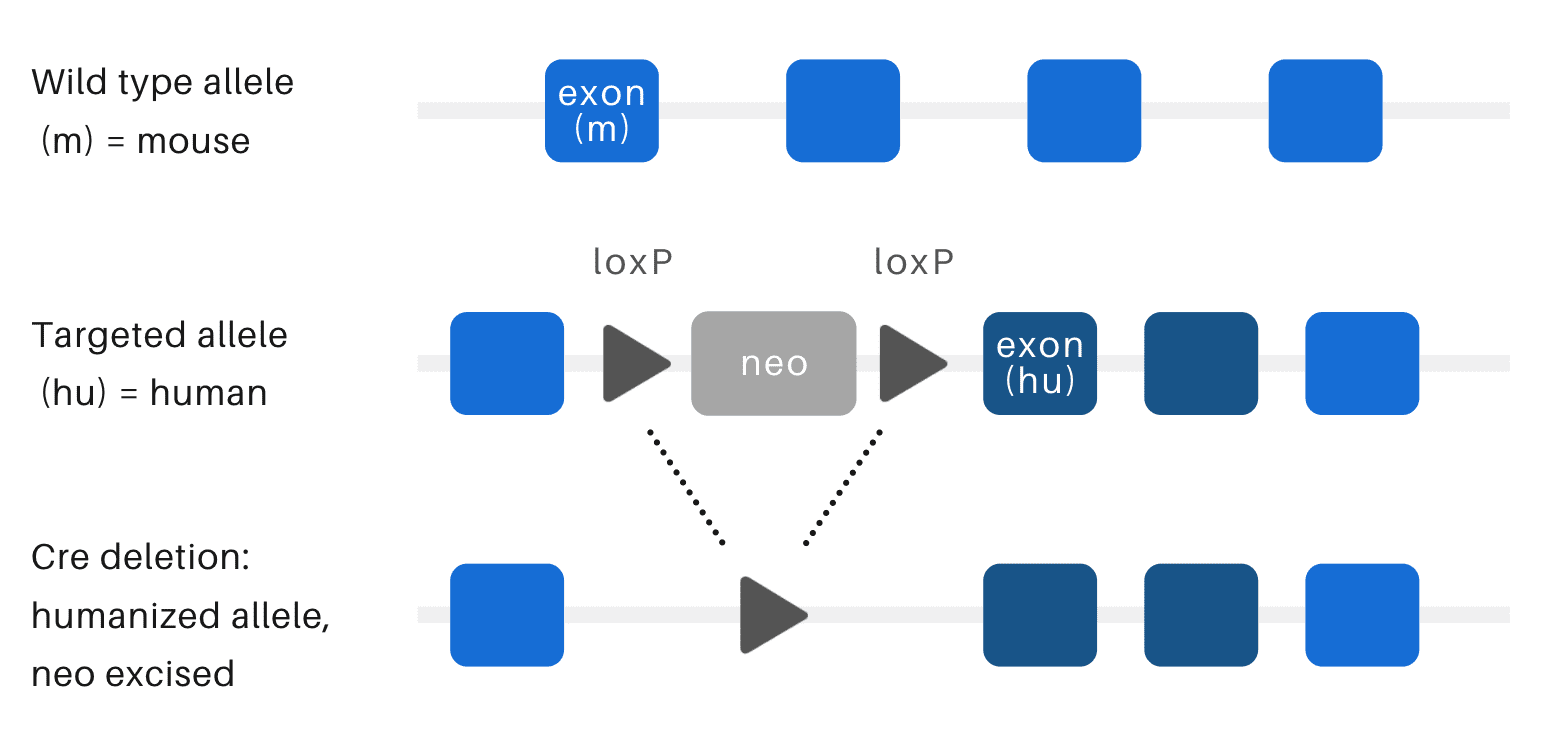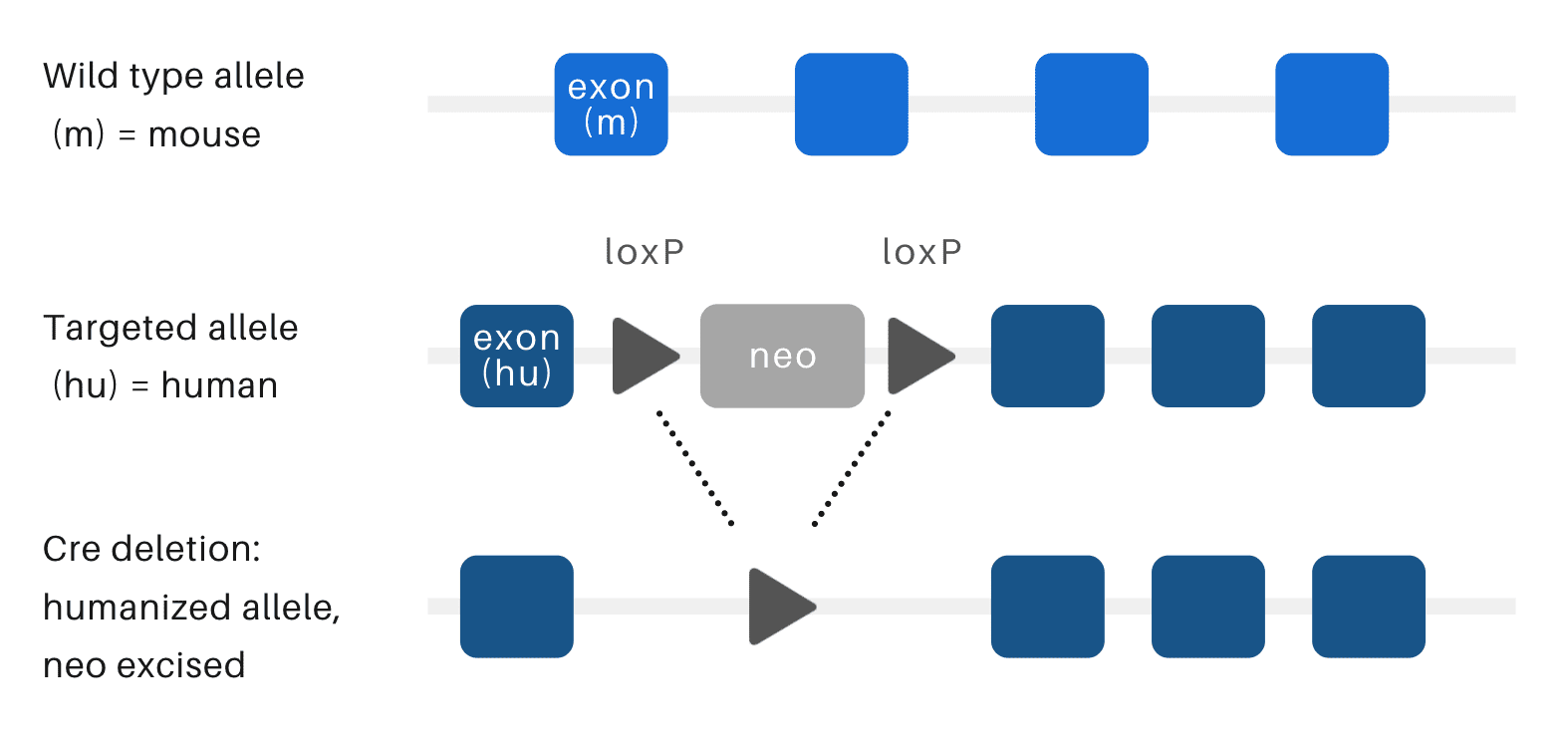Humanized mice
Humanized mice
What are humanized mice?
Humanized mice broadly refer to mice expressing human genes via transgenesis to gain relevant insights in the in vivo context for the understanding of human-specific physiology and pathology. Whilst many basic biological insights have been obtained from mouse studies, there are limitations to mouse models when investigating human biology. There are components of mouse biology systems that are inconsistent with their human counterparts, particularly the immune system. Humanized mouse models have begun to fill this gap and have become important pre-clinical tools for biomedical research. The use of humanized mice may facilitate the application of customised treatment in the medical industry.
What are humanized mice used for?
Humanized mice aim to recapitulate the in vivo function of human proteins. Therefore, they are widely used to study and develop treatments for human diseases. Humanized mice are particularly helpful for pre-clinical drug validation of human therapeutic antibodies. In recent years, they have become invaluable tools for cancer research as models for immune checkpoint target validation and immuno-oncology.

How to make humanized mice?
Human cDNA or human genomic DNA is homologously recombined into the mouse genome with the aim to replace anything, from a single amino acid residue to a functional domain or even an entire mouse gene, with the human equivalent. This process leads to the expression of the humanized protein in place of the mouse protein. Each humanization project is based on your requirements and we will assess your gene of interest to find the most appropriate approach.
At Ozgene, the timelines, efficiency and animal ethics of all mouse projects, including our Big Genomic Replacement (OzBIG), have been significantly improved by the proprietary goGermline™ technology.
Whole gene by cDNA replacement

Protein domain by genomic replacement

Whole gene by genomic replacement

How long does it take to generate humanized mice?

How long does it take to generate humanized mice?
Ozgene’s Lean management style coupled with patented goGermline technology allows us to generate mouse models in the fastest possible time together with increased certainty of germline transmission.
What kind of humanized mice do we generate?
We generate genetically engineered humanized mice where the human gene replaces the mouse gene, for example:
- humanizing point mutations,
- humanizing domains, such as extracellular domains,
- humanizing the entire gene,
- humanizing multi-gene loci.
OzBIG – Humanized mice up to 240 kb
Ozgene offers a service called OzBIG for robust creation of large, gene-targeted replacement models. This system enables routine generation of humanized mice with very large (20 to 240 kb) genomic replacements. OzGene are pleased to announce that they are working in partnership with Gen H in supporting our OzBIG capabilities. Read more here!
Read more about Ozgene’s Humanized mice
Generation of humanized mouse models to support therapeutic development for SYNGAP1 and STXBP1 disorders
Sequential treatment with a TNFR2 agonist and a TNFR1 antagonist improves outcomes in a humanized mouse model for MS
Co-modulation of TNFR1 and TNFR2 in an animal model of multiple sclerosis
Get in touch
We provide tailored preclinical solutions to support your research, from genetically modified mouse models to breeding and phenotyping. Request a free quote today.
Fill out the form, and our team will respond within two business days. For stock strain enquiries, contact Ozgene ARC at arc@ozgene.com. For additional contact options, visit our contact page.
‘Ozgene generated a humanized mouse model for our immune checkpoint target validation, which is responding perfectly in pre-clinical studies to validate candidate human therapeutic antibodies.’
– Researcher in Drug Discovery, Biotechnology, Europe

